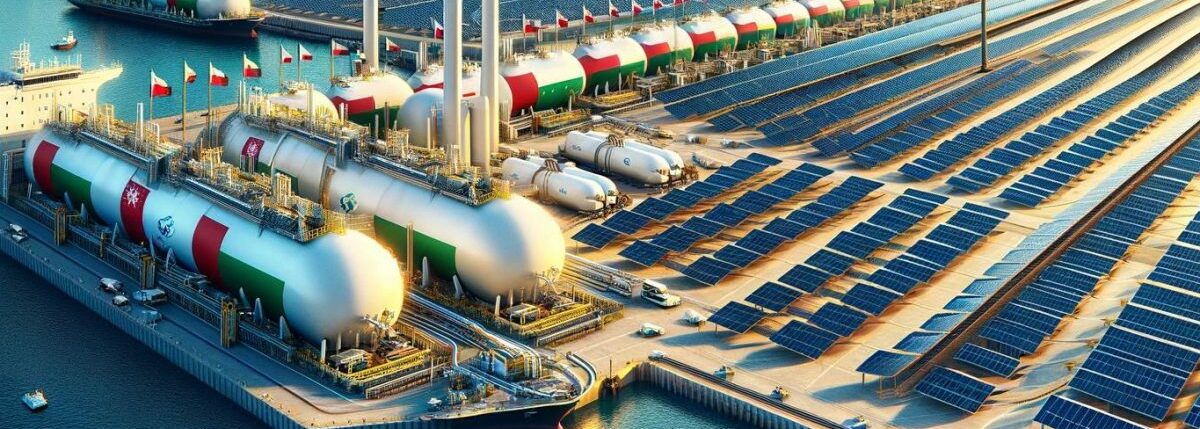In an unprecedented move in the Middle East, the Port of Sohar is set to become home to a pioneering LNG bunkering project, Marsa LNG, which will be entirely powered by solar energy. This venture marks the first of its kind in the region, showcasing a significant step towards integrating renewable energy sources with major industrial operations.
Marsa LNG, a collaborative effort between the French energy conglomerate TotalEnergies, holding an 80% stake, and Almuzn LNG LLC, a subsidiary of the Omani integrated energy group OQ with a 20% share, is poised to develop a 1 million tonne capacity LNG facility. The project is aimed at serving as a bunkering and export terminal, highlighting the strategic importance of Oman in the global energy market.
The ambitious project will be powered by a solar farm, uniquely located within Oman but away from the immediate vicinity of the LNG facility due to land constraints. This solar farm is designed to produce enough energy to not only meet but nearly double the plant’s requirements. The surplus energy generated during the day will be supplied to the national grid through a sophisticated ‘power wheeling arrangement’ with the Oman Electricity Transmission Company (OETC), ensuring a seamless energy supply to the LNG plant.
Marsa LNG’s strategy involves harnessing solar energy to cover 100% of the plant’s daytime operational needs. Approximately 44% of the solar farm’s output will be directed to the LNG facility during daylight hours, with the excess 56% being sold on the Omani spot market. At night, the plant will continue to draw power from the OETC grid, maintaining a consistent energy supply and marking a significant achievement in renewable energy utilisation in industrial applications.
This initiative is not only a technological feat but also a critical step towards reducing the carbon footprint of LNG operations. By offsetting Scope 2 emissions, Marsa LNG sets a new standard for low-carbon LNG production, potentially qualifying for carbon credits due to its innovative use of renewable energy.
In addition to its environmental benefits, Marsa LNG is designed as a zero-flaring plant, eliminating all normal flaring baseline emitters and ensuring minimal environmental impact. The plant will employ electric motors for all compressors and an air-based cooling system, addressing the water scarcity challenges in the area.
French engineering contractor Technip Energies is slated to lead the construction of the LNG bunkering project, with an estimated cost of $1 billion. The solar farm, a critical component of this initiative, will be developed as a separate project, further emphasising the commitment to sustainable energy solutions in the region.
Marsa LNG represents a significant milestone in the integration of renewable energy with large-scale industrial operations, setting a precedent for future projects in the Middle East and beyond.
